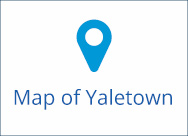“Real estate cannot be lost or stolen, nor can it be carried away. Purchased with common sense, paid for in full, and managed with reasonable care, it is about the safest investment in the world.” – Franklin D. Roosevelt
Foreign Investment
Can I buy real estate in Canada if I’m not a citizen or resident?
Yes you can. Canada doesn’t restrict who can buy real estate here or how much you can buy.
Can I get financing from a Canadian bank?
Yes, banks will usually require minimum 35% down payment from a non-resident. You must open a bank account in Canada to be considered for a mortgage here.
Taxes for Non-Residents
Great Vancouver Property Transfer Tax
Effective August 2, 2016, an additional property transfer tax applies to residential transfers to foreign entities in the Greater Vancouver Regional District.
The additional tax on property transfers to foreign entities is 15% of the fair market value.
The additional tax does not apply to non-residential property. This additional property transfer tax only applies to Greater Vancouver Regional District. Each province has their own tax system in regards to real estate.
Contact us for more details.
Principal Residence
If the property is used as a home and a principal residence as part of landing in Canada as a new immigrant, any gains on a future sale will not be taxed. If the property was first used as a rental property and then changed to a principal residence, taxes will apply on any gains calculated from the cost on the date purchased, to the fair market value at the date of the change in use.
Rental Income
A non-resident earning rental income has a choice of how the income is taxed:
(a) Pay 25% on the gross rents including recoverable expenses received OR
(b) Make an annual election on a prescribed form that must be filed to Canada Revenue Agency (CRA) by January 1st every year to pay tax on the net rental income by filing a Canadian income tax return for the net rental income only. If the tax return is filed late or not at all, the non-resident will be taxed 25% of the gross rents plus interest and penalty.
If the election is made by a non-resident individual, the individual will be taxed at graduated tax rates normally applicable to Canadian residents starting at about 23% up to $42,707 CDN and reaching about 43%, on the net rental income portion exceeding about $132,406 CDN. If the election is made by a non-resident corporation, the combined federal and provincial corporate income tax rate is approximately 29.5% to 35.5% on the net rental income, depending on the province.
Sale of Real Estate by a Non-resident
The tax treatment of any gains on the sale of Canadian real estate depends on whether the gain is treated as a capital gain or business income. Generally, if the non-resident is actively buying and selling real estate as inventory, then the operation is likely to be considered a business and will be taxed on the full amount of the gain.
If there is a capital gain, the normal Canadian tax rates will be applied to 50% of the gain for sales after October 17, 2000. However, a non-resident is required to pay an estimate of the tax before the sale, an amount of 25% of the gain. Upon payment, the CRA will issue a Tax Clearance Certificate to the vendor. If a purchaser does not receive this Certificate from the vendor, the purchaser, through their lawyer, is required to withhold tax and remit as tax to CRA 33.3% or more of the gross purchase price from the vendor!
Before April 30th following the calendar year of the sale, the vendor should submit a Canadian income tax return reporting the gain minus the actual selling expenses (sales commission, lawyer's fee, etc..) as this will result in a tax refund of part of the taxes that were paid on closing, back to the vendor.
These are specialized procedures that require experienced tax professionals to ensure the Tax Clearance Certificates are approved quickly and to ensure the lowest amount of tax is paid.
Goods and Services/Harmonized Sales Tax (GST/HST)
5% G.S.T. is payable on the purchase price of newly constructed or substantially renovated residential homes. Substantially renovated is defined in the legislation as the removal or replacement of most of the house construction components except for the foundation, external walls, interior supporting walls, floor, roof and staircase.
Other expenses when puchasing real estate in Canada;
Inspection
Insurance
Bank appraisals
Legal Fees for closing
Property Transfer Tax (BC) 1% on the 1st $200,000 and 2% on balance. Each province has a different structure.
GST (if applicable - new construction)
One difference when purchasing in Canada as opposed to the USA is that our deposits sit in a "Trust account" as opposed to an "Escrow account".
The information presented here is general in nature and is not intended to replace professional advice where facts and circumstances may be different. No action should be taken without consulting your Chartered Accountant. Enquiries related to this article, other tax or business matters and career opportunities should be made















